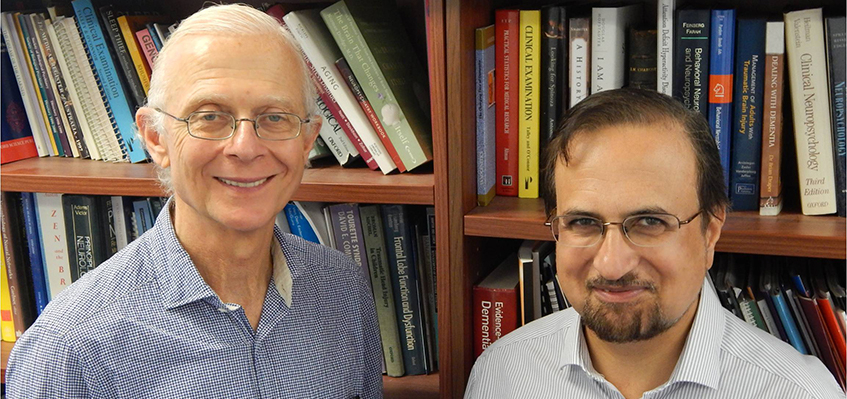19 Dec 2013

PROFESSOR PERMINDER SACHDEV and PROFESSOR HENRY BRODATY, CO-DIRECTORS, CHeBA
There is a worldwide effort to identify risk and protective factors, establish biomarkers and develop novel treatments for mild cognitive impairment (MCI), dementia and geriatric depression.
Over the last decade, our group has been a leading contributor to this effort. We established five longitudinal studies of cognitive ageing and dementia along multiple lines of investigation which include neuroepidemiology, neuropsychology, neuroimaging, genetics/genomics, proteomics, stem cells, metabolomics and neuroinflammation, and a number of exciting findings have emerged.
Since the official development of the Centre for Healthy Brain Ageing (CHeBA) last year, we have increased our collaborative effort and developed a number of international partnerships with consortia. Our intention is to build upon these excellent resources and additionally develop novel and innovative research themes. A major focus will be on biomarker research using genomics, proteomics and neuroimaging. In addition, some promising young post-doctoral fellows at CHeBA will give a new impetus to the bench-to-community approach we have taken for our research, allowing for translation and back-translation of the research.
The next five years will therefore see a major thrust to translate some of our findings into investigator initiated trials as well as public awareness campaigns, and making an impact on brain ageing at the clinical level and populations levels.
Recent findings from Alzheimer’s Disease International (ADI) assert that the number of people living with dementia worldwide in 2013 is estimated at 44.35 million, reaching 75.62 million in 2030 and 135.46 million in 2050.
In Australia, there are currently over 300,000 people with dementia.
With Alzheimer’s disease and other dementias reaching epidemic proportions, it is imperative that we continue to develop international collaborations with other experts in the field to facilitate greater research outcomes.
Our ultimate goal, through our research, is for people to achieve their full life span and enjoy a good quality of life unaffected by loss of cognitive ability.
